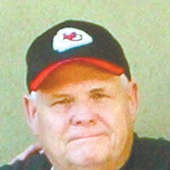He sailed the ocean blue
I am writing this week's article on Columbus Day. Five hundred and twenty-three years have passed since Columbus and his men arrived in what we refer to as "The New World." In world history, there have been few events that have impacted mankind more.
Most every child for years in American schools, learned portions of a famous poem, "In fourteen hundred ninety-two Columbus sailed the ocean blue. He had three ships and left from Spain; He sailed through sunshine, wind and rain...Oct. 12 their dream came true, you never saw a happier crew! Indians! Indians! Columbus cried; but 'India' the land was not;"
We, who have inherited this "New World," still celebrate Columbus Day, but few of us stop to consider the tremendous forces that were in play during those times, nor do we realize the impact the "Age of Discovery," holds for us still today.
In Europe there had been several hundred years of what we refer to in history, as the "Dark Ages." During this time, much of the ancient worlds previous achievements were lost.
Concurrent with the "Age of Discovery," a rebirth of knowledge began. This enlightened period is known as the "Renaissance." Science, education, art, and countless innovations appeared during this time.
New and powerful countries emerged during this period too. Spain, England, Portugal, and the Netherlands, became even more powerful, when they built huge navies.
Scientists and sailors became partners in developing ships and equipment that would allow them to travel far from land. Marco Polo had introduced to Europe the many new products from the Far East, but caravan travel across Asia was slow and dangerous.
Columbus was among an emerging group of sailors, who believed that a new path to the riches of the "Indies," was to be found by sailing to the west, around the globe. As we all know now, they were right, but they didn't realize, that there were large continents between them and Asia.
The "Age of Discovery," soon evolved into an era of colonization. Each of the powers in Europe tried to gain as much territory as possible, in both the Americas and the Far East.
It was during this time, the seeds of freedom and democracy, were spread for our own future way of life and government. Spain, Portugal, and the Dutch, colonized by giving large land and trade grants, to noble families and trade corporations.
While there were some land grants in what was to become the United States, most of our colonization was completed by frontier settlement. In the other countries classes of citizens became the norm. Millions of them were peasant types, who were uneducated and poor.
In our country, a great migration moved from the east to the west, in a relentless trek. Our ancestors had to fend for themselves for survival and protection. Eventually, when England tried to impose more control, the colonists revolted. The result was the creation of the United States of America.
Eventually practically every area of the "New World," broke away from their parent countries. There is one unique note about these new countries. Despite all the world wars and other conflicts, there have been few wars between the lands of the New World.
We did have a short war with Mexico in the 1840s, which allowed us to gain all of Texas and areas between there and California, but since then, the New World has continued to remain predominately war free.
Some historians contend that the New World has been more successful than the older areas, because of the types of people who emigrated here. The theory is that only the most adventurous and daring of people were willing to take the risk and move into the unknown. It certainly would seem to have been the case in our country. Those same frontier settlers often came to the New World with very little money or means to develop their new territories.
They hacked their homesteads out of the wilderness, fought off Indians, and created a sense of self-reliance that exists still today. Their shared sense of community, led directly to the practice of democracy. Town hall meetings are still held in some parts of our country. There was never a nobility class in America, and equality was considered a basic human right.
Yes good old Columbus and the other discovery captains gave us a vast "New World" to inhabit. They sought in their conquests both spices and gold. I wonder what they would think if they could see us now?
The "New World" gave us many new products. There are 2 in particular, that have gained in value as the years have passed. Corn (Maize as it was known by the Indians) and potatoes, were two of the most important foods discovered in the new lands. Tobacco and coffee were also big trade items for colonies in the "New World."
This week in the United States, we will celebrate "Columbus Day," as a national holiday. Banks will be closed, and retailers will offer huge sales at stores and online. For many of us, it is just one more holiday.
I think we should all stop and think about good old Christopher Columbus, and his three ships that sailed in 1492, to our new lands. His voyages to the "New World," created an era of settlement, that led each of us to the very free lives we enjoy today.
In recent weeks, there has been a lot of talk about the planet Mars, and the possibility of settlement there in the future. Sort of makes you wonder who will be the "Christopher Columbus," that will lead that first expedition. If you got the chance, would you sail away on that trip? Maybe the first ship to Mars should be named the "Christopher Columbus!"

